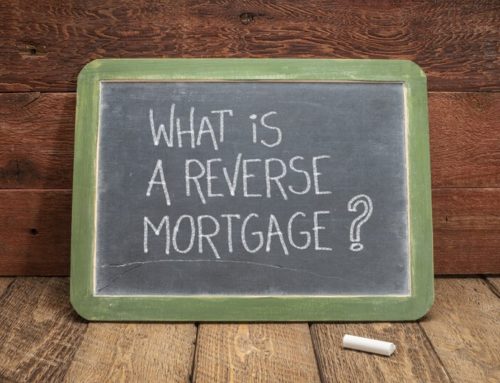Mike Anderson in his column published in NerdWallet states:
“Reverse Mortgage Changes Make Retirement Harder…”
I resent the implication because Anderson is saying that retirement is getting harder for seniors BECAUSE the reverse mortgage program has changed, implying that A equals B.This is not true.
To be honest, I’ve done posts before about the current state of retirement in America, and it paints a grim picture even before these changes were to be implemented. The reverse mortgage is an OPTION for retirees planning their retirement or looking to secure a “rainy day fund” on top of their current income but it is not the be all and end all of retirement.In fact, that kind of thinking is what has brought upon the changes Anderson is talking about in the first place.The reverse mortgage program was put in place as a financial planning tool for retirement. As a WAY for seniors to continue to live comfortably if the need for extra funds should arise, especially on a fixed income. It was never meant to be a solution to extensive debt or other money problems as many people thought it to be.In addition, retirement savings have reached a $14 trillion gap, and this was also before the implementation of changes. The fact of the matter is, people aren’t saving like they should be, and then they hope the reverse mortgage can solve all their problems. A reverse mortgage can solve some problems, maybe even make retirement all that much more enriching and fulfilling, but the funds do need to be managed.It’s like getting a Christmas bonus and spending it all on Christmas shopping. You can do it, spend everything, but what happens in January when the bills are due? Something has to give and it should be that which we can live without.In regards to the upcoming changes Anderson mentions:first year limit
smaller loans
fee changes
a financial assessment.
These will be implemented in hopes of making the program safer for borrowers AND lenders. There needs to be a form of risk management and this is what HUD has decided on for the time being.Limiting first year withdraws safeguard consumers against overdrawing their funds and ending up in worse shape than before. Smaller loans ensure that lenders lend out reasonable, yet manageable amounts, so consumers owe less than they would’ve. The changes in fees, namely, the MIP fees, make sure that the reverse mortgage continues to be a non-recourse loan, without endangering HUD’s Mutual Mortgage Insurance Fund. Lastly, a financial assessment will prevent homeowner’s from defaulting on their loans by determining if they will be able to keep up with their financial obligations before they obtain a reverse mortgage.Reverse mortgages, properly handled, have managed to help many seniors during their retirement. I’ve seen it in action when my grandparents took out a reverse mortgage.Will these changes potentially shut some homeonwers out? Yes, but it will also make the program safer for those who qualify. It’s not ideal but, for now, it seems like the best plan of action. Sadly, there’s nothing we can do but adapt and hope everything works out for the best.Interested in a reverse mortgage or want more information? Give PS Financial Services a call at (888) 845-6630 or email us at info@PSReverseMortgage.com. We do not pressure those who inquire.















